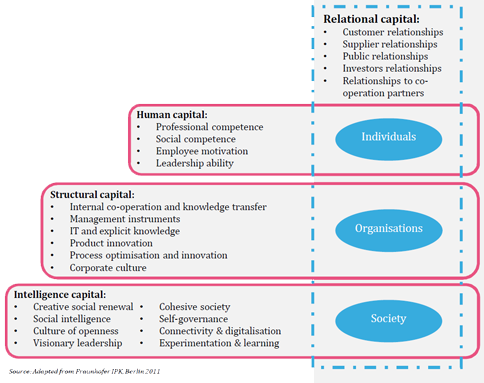Europe needs more entrepreneurs to speed up the digital transformation process. Business entrepreneurs, social entrepreneurs, societal entrepreneurs, academic entrepreneurs, political entrepreneurs, cultural entrepreneurs as well as public and private intrapreneurs are critical to drive forward the digital shift.
Widening the definition of entrepreneurship
An entrepreneur is a person that takesinitiatives to achieve one or different goals. Entrepreneurs can therefore be found in many sectors and industries. Clearly, we need great and passionate entrepreneurs in the following areas if we want to speed up the digital skills and their effectiveness:
- Business entrepreneurs
- Social entrepreneurs
- Societal entrepreneurs
- Academic entrepreneurs
- Political entrepreneurs
- Cultural entrepreneurs
Creating an entrepreneurial culture is a life-long political and practical process. It starts with the philosophy in the preschool and elementary schools and up. The components needed for creating long-term entrepreneurial culture is: risk-taking, robust relationships based upon trust in and between sectors, financial industry presence (money) professional services and an attitude of sharing and generosity. Again we see the true need for a “3G” society to be in the making when different generations are working together with mutual learning as the result. The culture creating process is very much a co-creating process between public and private sector including citizens. The figure below illustrates the expected attitudes and trends in the future collaboration in the interface betweenthe stakeholders.

Developing an entrepreneurial culture in the public administration
Hiring the right policymakers with an acute understanding of the needs of local firms and tech entrepreneurs and the development of the entrepreneurial skills of existing public servants is therefore key to create the conditions for sustained digital transformation.
Social intelligence and Intellectual capital for local entrepreneurs
A key issue for the creation of an entrepreneurial culture is the approach to social intelligence and the intellectual capital of a city, region and a nation region. We see the three following levels in the social intelligence system for local, regional and national development of relationships capital that has to be: managed, lead and developed:
- Intelligence capital and Society level: how: different societies are interconnected and shared in order to develop knowledge and business intelligence
- Structure capital and organisational level (companies, public sector organisations, not for profit or research organisations): how different organisations are interconnected in sharing knowledge.
- Human capital and the different creative individuals: the level of interconnectivity between individuals.
From connectivity to “contactivity”!
All these levels can be perceived from a technical approach: “the connectivity”. This connectivity is a good beginning to start leveraging on the IC and knowledge capital. The exponential opportunity only comes at a later stage when real solid contacts have been established.
The press and media as critical means to spread the entrepreneurial culture
The press and media play a vital part in recognising, stimulating and promoting the success of local entrepreneurs. The positive media coverage of success stories from (tech) entrepreneurs has the ability to inspire a new weave of forward-thinking entrepreneurs. There can be no genuine development of an entrepreneur-friendly culture without media and more specifically businessreality programmes. These programs can have a positive effect on social norms and values associated with entrepreneurship. Press and media can also indirectly influence both the will to start an entrepreneurial venture. At last, positive media coverage can be complementary to policy initiatives aiming to stimulate entrepreneurship. For instance, media could cover awareness campaigns to tackle the stigma of failure that is too often hindering entrepreneurs from starting a new company.

